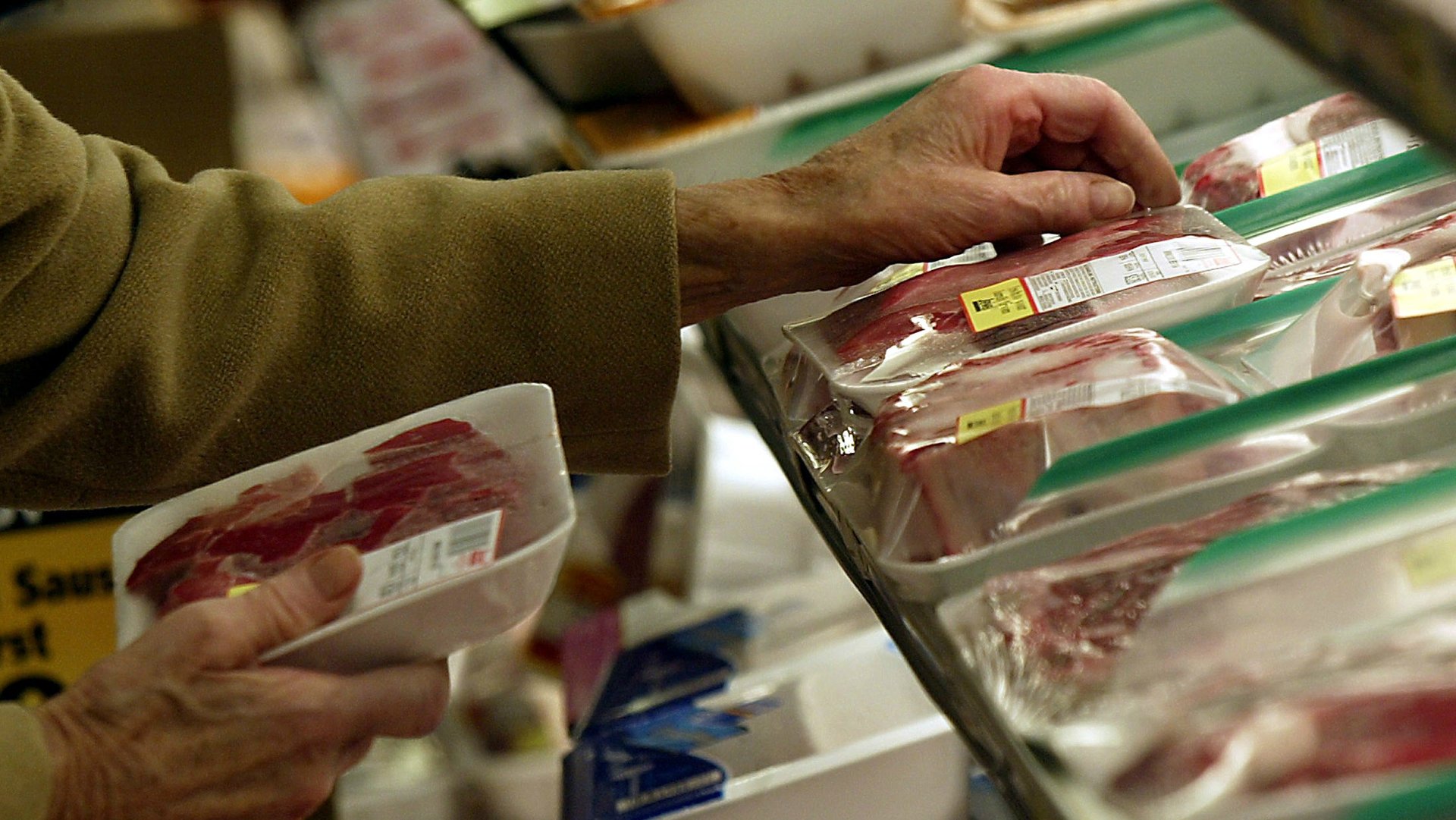The next big sin tax could be aimed at meat
It’s a controversial question that sits at the intersection of climate change, public health, animal agriculture, and governance: Should eating meat be considered in the same category as cigarettes and alcohol, taxed for their inherent sinfulness?


It’s a controversial question that sits at the intersection of climate change, public health, animal agriculture, and governance: Should eating meat be considered in the same category as cigarettes and alcohol, taxed for their inherent sinfulness?
The meat industry in recent years has faced criticism on multiple fronts. For one, the United Nation’s Food and Agriculture Organization has said livestock account for about 14.5% of the world’s total greenhouse-gas emissions. That number is bound to grow as meat consumption around the world is expected to increase as much as 73% by 2050, driven in large degree by surging middle classes in India and China. To reach the emissions goals set out by the Paris Climate Accord, governments around the world may need to force major changes to their meat-production industries.
And then there is the issue of public health. In October 2015 the World Health Organization published a report linking meat consumption and cancer—particularly processed meats and colorectal cancer. Red and processed meats have also been linked to higher risk of cardiovascular disease and diabetes. The Chinese government has asked its citizens to cut back on meat, and in Belgium, public health officials recently redesigned the national food pyramid, relegating processed meats to a section otherwise occupied by junk food like candy and pizza.
A new report by investor group Farm Animal Investment Risk & Return (FAIRR) Initiative argues that, given meat’s popularity combined with its undesirable and harmful effects, it’s likely that governments will start to consider applying a “sin tax” to it. “Practically every government in the world faces challenges when it comes to balancing their budgets, and an increasingly attractive target for revenue creation is a tax on goods deemed to be unhealthy or damaging to the environment or both,” a statement by FAIRR reads.
Data show sin taxes do have an effect on purchasing behavior. Smoking rates in the US are highest in cities and states with lower taxes on cigarettes, according to The Washington Post. That makes sense considering the same pack of cigarettes can cost as much as $13 in New York City and as little as $4.77 in Kentucky, the state with the highest rate of smokers. And soda consumption has decreased in Mexico since the country adopted a sugar tax in 2015. In Berkeley, California, which adopted a soda tax in March 2015, soda sales dropped 10% in the first year of implementation.
In some cases, such taxes are tied to efforts to combat the issues provoked by the original problem. For instance, money collected by a soda tax in Boulder, Colorado is slated to be spent on health promotion and wellness programs. That’s not always the case, though. In Philadelphia, a soda tax was passed with the understanding that it would fund the city’s universal pre-kindergarten program.
Germany, Denmark, Norway, and Sweden have all considered a meat tax before, but not without experiencing pushback from the farming sector. The agricultural sector claims such a tax would increase the price of food, threaten the livelihood of some farmers, and drive up unemployment.
During the 2016 US presidential-election primaries, senator Bernie Sanders called the Philadelphia soda tax (then still a proposal) “regressive.” The claim was backed by PolitiFact, which spoke with economists who argued such a tax would disproportionately impact lower- and moderate-income families. This may prove to be the biggest hurdle for governments around the world who do want to tax meat. For all the ills caused by meat, it remains an efficient and affordable vehicle for important nutrients people need.
The FAIRR initiative, which includes a group of 57 investors with more than $2.3 trillion under their management, are preparing for a world where these hurdles have been cleared. It’s already busy developing a plan to approach 16 global food companies of which they’ve invested, and ask them to diversify their protein sources, according to Bloomberg. That request is well-timed, as plant-based protein companies, including Beyond Meat and Impossible Foods, have been gaining momentum in the US market. Even Tyson Foods, the largest American meat producer, has invested in Beyond Meat’s product. Also, startup companies such as Hampton Creek, Memphis Meats, and Mosa Meat are working to get cultured meat—the kind grown from cells in large bioreactors—into the market as early as next year.